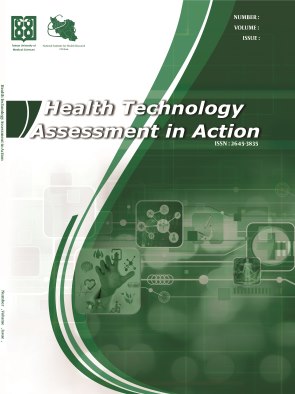Factors Influencing Adherence to Anti-Hypertensive Medications: A Cross-Sectional Study among the Najran Population, Saudi Arabia
Abstract
Background:Anti-hypertensive drugs are a crucial component of managing hypertension, and significant cause of morbidity and death globally. However, adherence to anti-hypertensive medications is often suboptimal, leading to poor blood pressure control and increased risk of cardiovascular events.
Aim: To determine the elements affecting the Najran population's adherence to anti-hypertensive medication.
Methods: An 18-year-old or older population who had been diagnosed with hypertension and were now using anti-hypertensive drugs participated in this cross-sectional study. Participants were asked to fill out a self-administered data collecting form to provide socio - demographics and adherence-related data. Anti-hypertensive medication adherence was evaluated using the Morisky Medication Adherence Scale (MMAS-8). To find determinants of adherence to anti-hypertensive drugs, bivariate and multivariate analyses were performed.
Results: Among 208 participants, (57.2%) were married, had a secondary education (34.6%), worked for the government (36.1%), and lived mostly in cities (95.2%). The average score on the MMAS-8 was 4.66 plus 2.53, which indicates a moderate level of non-adherence to anti-hypertensive treatment. There were significant associations between MMAS-8 scores and sex, marital status, educational level, employment status, residency, source of knowledge, and duration of anti-hypertensive medications.
Conclusion: Several factors are associated with non-adherence to anti-hypertensive medications among the Najran population in Saudi Arabia. Female sex, single marital status, primary education, private sector employment, and rural residency were independent predictors of non-adherence. These findings suggest that interventions to improve adherence to anti-hypertensive medications should consider these factors and be tailored to the specific needs and challenges faced by individuals in studied subgroups.
2. World Health Organization. Hypertension. 2019 Available from: https://www.who.int/news-room/fact sheets/detail/hypertension.
3. Rudresh V. Associations between Depression and Blood Pressure Among United States Adults: A Bayesian vs. Frequentist Approach. 2020.
4. Desta M, Yibeltal D, Memiah P, Ayenew T, Mulugeta H, Gedefaw M, et al. Antihypertensive medications adherence and associated uncontrolled blood pressure among hypertensive patients in Ethiopia: Systematic review and meta-analysis. Int J Africa Nurs Sci. 2022;16. https://doi.org/10.1016/j.ijans.2022.100404.
5. Herttua K, Martikainen P, Batty GD, Kivimaki M. Poor Adherence to Statin and Antihypertensive Therapies as Risk Factors for Fatal Stroke. J Am Coll Cardiol. 2016;67(13):1507-15. [PubMed ID:27150680]. [PubMed Central ID:PMC4863178]. https://doi.org/10.1016/j.jacc.2016.01.044.
6. Al Sowielem LS, El Zubier AG. Compliance and knowledge of hypertensive patients attending PHC centres in AL Khobar, Saudi Arabia. Eastern Mediterranean Health Journal. 1998;4(2):301-7. https://doi.org/10.26719/1998.4.2.301.
7. Al-Hamdan N, Saeed A, Kutbi A, Choudhry AJ, Nooh R. Characteristics, risk factors, and treatment practices of known adult hypertensive patients in saudi arabia. Int J Hypertens. 2011;2010:168739. [PubMed ID:21318133]. [PubMed Central ID:PMC3034950]. https:// doi.org/10.4061/2010/168739.
8. Saeed AA, Al-Hamdan NA, Bahnassy AA, Abdalla AM, Abbas MA, Abuzaid LZ. Prevalence, Awareness, Treatment, and Control of Hypertension among Saudi Adult Population: A National Survey. Int J Hypertens. 2011;2011:174135. [PubMed ID:21912737]. [PubMed Central ID:PMC3168271]. https://doi.org/10.4061/2011/174135.
9. World Health Organization. STEPwise approach to surveillance (STEPS). 2012 Available from: http://www.who.int/chp/steps/en/.
10. Khalil SA, Elzubier AG. Drug compliance among hypertensive patients in Tabuk, Saudi Arabia. J Hypertens. 1997;15(5):561-
5. [PubMed ID:9170010]. https://doi.org/10.1097/00004872-199715050-00013.
11. Yassine M, Al-Hajje A, Awada S, Rachidi S, Zein S, Bawab W, et al. Evaluation of medication adherence in Lebanese hypertensive patients. J Epidemiol Glob Health. 2016;6(3):157-67. [PubMed ID:26232704]. [PubMed Central ID:PMC7320474]. https://doi.org/10.1016/j.jegh.2015.07.002.
12. Hyre AD, Krousel-Wood MA, Muntner P, Kawasaki L, DeSalvo KB. Prevalence and predictors of poor antihypertensive medication adherence in an urban health clinic setting. J Clin Hypertens (Greenwich). 2007;9(3):179-86. [PubMed ID:17344769]. [PubMed Central ID:PMC8110013]. https://doi.org/10.1111/j.1524-6175.2007.06372.x.
13. Lee GK, Wang HH, Liu KQ, Cheung Y, Morisky DE, Wong MC. Determinants of medication adherence to antihypertensive medications among a Chinese population using Morisky Medication Adherence Scale. PLoS One. 2013;8(4):e62775. [PubMed ID:23638143]. [PubMed Central ID:PMC3636185]. https://doi.org/10.1371/journal.
pone.0062775.
| Files | ||
| Issue | Vol 9 No 3 (2025) | |
| Section | Articles | |
| DOI | https://doi.org/10.18502/htaa.v9i3.19641 | |
| Keywords | ||
| Adherence Medication Antihypertensive Non-Adherence | ||
| Rights and permissions | |

|
This work is licensed under a Creative Commons Attribution-NonCommercial 4.0 International License. |




